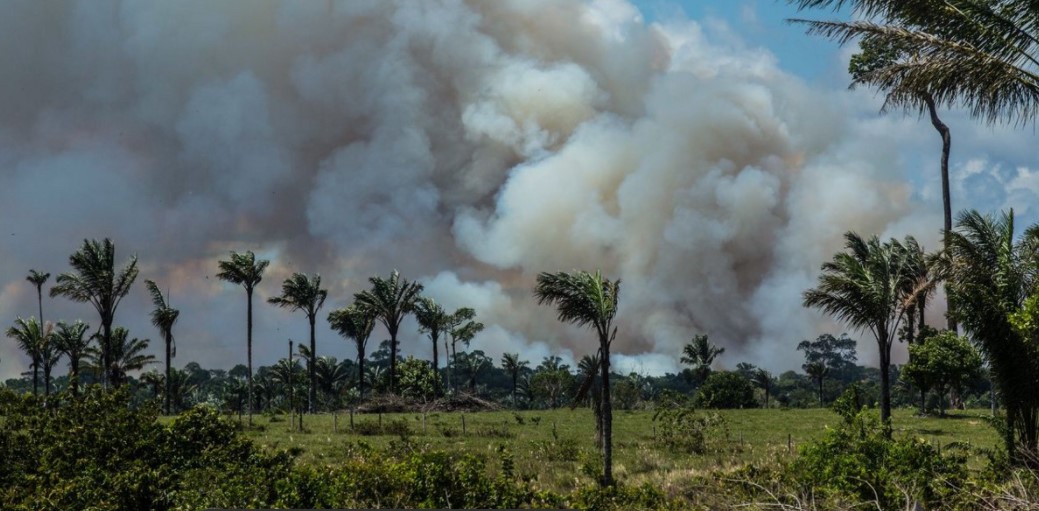More than 100 countries, accounting for 85% of the world’s forests, agree to protect and restore them
The Wall Street Journal
By Max Colchester
PHOTO: DADO GALDIERI/BLOOMBERG NEWS
Updated Nov. 2, 2021 6:49 am ET
Key messages
- World leaders from more than 100 countries, including the U.S., China and Brazil, agreed to a deal aimed at ending and then reversing deforestation by 2030,
- committing nearly $20 billion of public and private funds to protect and restore forests.
GLASGOW-World leaders from more than 100 countries, including the U.S., China and Brazil, agreed to a deal aimed at ending and then reversing deforestation by 2030, committing nearly $20 billion of public and private funds to protect and restore forests.
U.K. Prime Minister Boris Johnson, during the COP26 climate summit in Scotland on Tuesday, called the pledge a landmark agreement that includes countries accounting for 85% of the world’s forest land.
But details about how such a deal, which isn’t legally binding, would be executed and policed haven’t yet been worked out.
“Protecting our forests is not only the right course of action to tackle climate change but the right course for a prosperous future for us all,” Mr. Johnson said.
The deal, while short on specifics, nonetheless represented a bridge between the world’s rich countries and poorer, developing ones.
The two sides had squared off over a broader consensus over how quickly to cut emissions in an effort to stave off the worst effects of global warming.
The agreement is also a step forward from a similar pledge to save global forests made in 2014 at a summit in New York.
That pledge, though, didn’t include signatories including China, Brazil and Russia, which have now signed up. Getting those big, fast-growing nations aboard was vital for the process, officials said.
The funds will be used to
- help countries restore forests and tackle climate events, such as wildfires.
- They will also help indigenous people protect their land and improve data systems to track illegal logging.
The signatories covered forest land stretching from Russia to the Amazon and Congo rainforests.
Forests are key for removing carbon dioxide from the atmosphere, helping curb global warming.
The signatories covered forest land stretching from Russia to the Amazon and Congo rainforests.
Where does the money comes from?
Some $12 billion of public finance for the project comes from 12 countries and will be made available between 2021 and 2025.
The pledge leans heavily on the private sector.
$7.2 billion of private investment in the project includes $2 billion from Amazon.com Inc.’s founder Jeff Bezos ’ Bezos Earth Fund.
In “too many parts of the world, nature is flipping from a carbon sink to a carbon source,” Mr. Bezos said, while presenting the initiative.
Over 30 finance companies signed a pledge to not invest in commodity-driven deforestation. Signatories included big U.K. insurer Aviva PLC.
A G-20 meeting of the world’s biggest economies over the weekend failed to narrow a divide between rich countries such as the U.S. and members of the European Union, which have asked heavier polluting countries, such as China and India, to accelerate their emissions cutting pledges.
One of the Glasgow climate summit’s main objectives is to solidify the 2015 Paris agreement, which called on countries to commit to emissions cuts that scientists hope will keep global warming limited to 2 degrees Celsius, and ideally closer to 1.5 degrees, above preindustrial-era temperatures.

Biden Urges Nations to ‘Seize This Moment’ as COP26 Opens
In a speech kicking off the COP26 summit in Glasgow, President Biden urged world leaders to be a part of the “decisive decade” and work to combat climate change. The gathering follows the G-20 summit, where leaders agreed on only a few specifics. Photo: Evan Vucci/AFP/Getty Images
India punctuated the divide on Monday, committing to a goal of net-zero emissions, but not until 2070 — two decades later than pledges by much of the developed world.
The deforestation deal included both rich and poor countries, including nations such as Brazil and Indonesia, frequently the target of critics who said those governments aren’t doing enough to protect their forests.
“We are committed to protecting these critical carbon sinks and our natural capital for future generations,” said Joko Widodo, Indonesia’s president, in prepared remarks ahead of the Tuesday announcement.
Negotiating the Planet’s Future
Wall Street Journal reporters at the United Nations climate conference discussed the negotiations, the scene in Glasgow and the chances for action on combating climate change.
Watch the Conversation
Some expressed skepticism about the pledge, saying it would have to be properly implemented and enforced to have any real effect. “World leaders first set a 2030 goal to end deforestation in New York in 2014, but since then deforestation has accelerated across many countries,” said Alison Hoare, a senior research fellow at the Chatham House think tank.
Still, the agreement was the first big win for the U.K. COP presidency, which aims to use the two-week event to push a series of side deals to curb emissions. These include reducing the use of coal, accelerating the move from combustion engine cars to electric cars and finding more cash to give to developing nations to help them transition away from fossil fuels.
Originally published at https://www.wsj.com on November 2, 2021.











